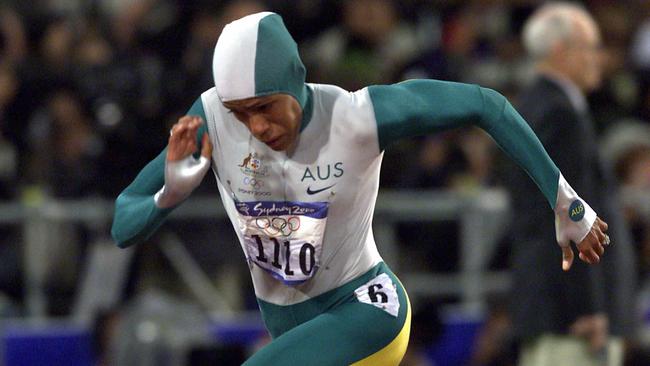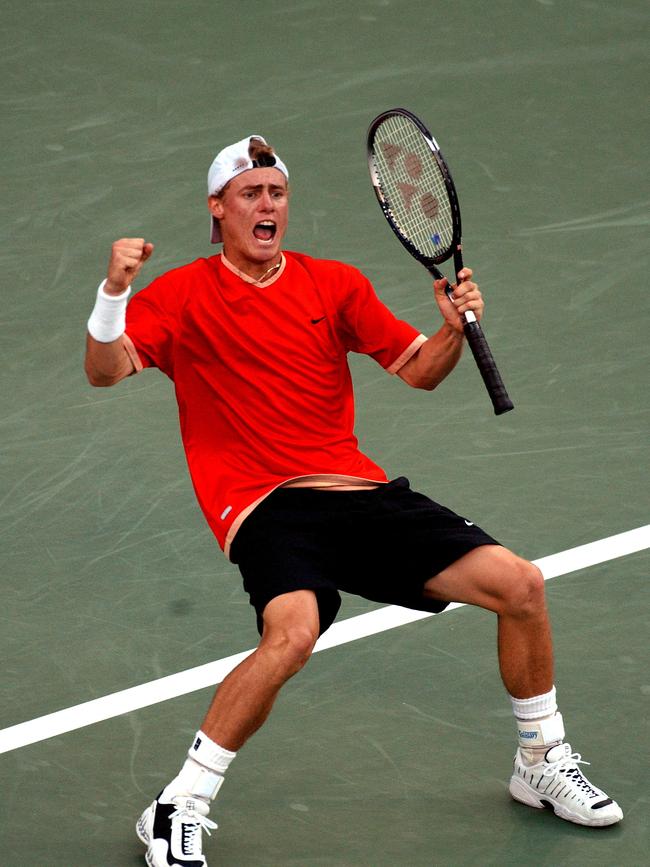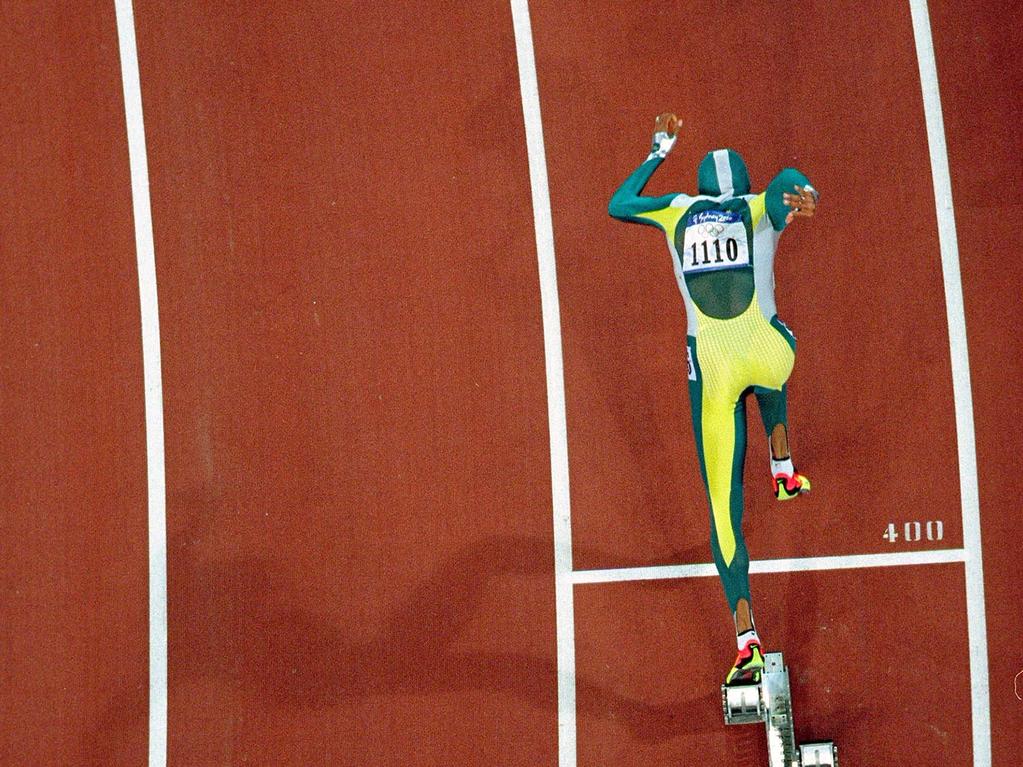Hope still springs eternal in this year of the infernal
The world celebrated the 2000 Sydney Olympics; that now seems a distant dream.

Historians tend to view most epochal events as inevitable. Hindsight is a wonderful thing. The poetry and literature about the European summer of 1914 is poignant. Especially when it is read with knowledge of the Somme and the erasure of an entire generation. Edwardian England basked in gentle summer twilight. Garden parties. Cricket.
In his beautiful, elegiac work, The Final Over, Christopher Sandford captures the cadences and tones of the familiar English summer. One Nottingham player was batting when he was advised he would be required for service. He politely requested to face one “final over” before departing. He was killed before the end of the year. Before the lights went out all over Europe the world seemed safe and certain. Immutable. Until it was consumed by a global cataclysm, the shockwaves of which still reverberate through the global order. In particular the collapse of the Ottoman Empire unleashed tribal and religious forces that have never been pacified.
Currently, the world appears to be descending into disorder. Some foreign policy analysts speak of the liberal international order as if it still exists. It died before COVID-19 escaped from Wuhan. The world of Hobbes and Von Clausewitz has replaced that of Woodrow Wilson and Dag Hammarskjold. We are limping into a new Westphalian era of war, pestilence and plague. Maybe a new Enlightenment led by social media influencers and self-help gurus will inevitably emerge from the chaos. Who saw this coming even a decade ago, much less at the dawn of this century?

During the week I reflected on Lleyton Hewitt’s demolition of Pete Sampras to win the US Open on September 9, 2001. In memory’s fallible, malleable eye that seemed to be the inevitable conclusion to an endless spring that began with the 2000 Sydney Olympic Games.
It bookended a period of optimism in Australia where our nastiest fights had been over the introduction of GST and John Howard’s refusal to apologise to the Stolen Generations. Hewitt provided a neat bookend to Cathy Freeman’s triumph at the Sydney Games almost exactly one year before. “Bliss it was in that dawn to be alive, but to be young was very heaven.”
Not a cloud on the geopolitical horizon. The Soviet Union, that ghastly bastard progeny of the Great War, had been vanquished taking with it my generation’s childhood nightmares of perishing in a nuclear holocaust. Tony Blair flagged an era of benign humanitarian intervention by the West following NATO’s decisive intervention in the former Yugoslavia. No more Rwandan genocides. No more stand-offs between nuclear-armed superpowers. Such was the inevitability of the End of History
A new century beckoned. We had even survived the Y2K bug. Now there was a virus I could enthuse over. No masks. No lockdowns. No self-important state leaders assuring us that you had to be cruel to be kind. Yes, it has been an appropriate week to reflect on the past. To conjure with that spring evening when Freeman sent a surge of elation and hope through an entire nation from sea to shining sea. One borderless commonwealth, united in euphoria. One fleeting moment of shared identity and vicarious pride. Hewitt never struck the same chord among Australians as did Freeman. His prickliness could have been camouflaged in Steve Waugh’s slips cordon. But individual sport exposes temperament as ruthlessly and nakedly as it does prowess. He was gutsy but abrasive, a player for the purists. More heart than craft. An indomitable spirit. But not a player to whom the term grace often attached itself. He demolished Sampras.
But demolition took on a more brutal guise only days later as those planes ploughed into the World Trade Centre. It was all quite inevitable according to the left. Our ghastly history of meddling in the Middle East justified the attacks on those pillars of Western capitalism. The Hate America First cabal was in full voice. And, for good measure, Howard had intercepted a Norwegian freighter named the Tampa just weeks before and refused it access to Australia.
The warm, glowing embers of 2000 were extinguished. They have never been reignited. Within weeks the commander of those Special Air Service troopers was in Afghanistan hunting Osama bin Laden. Today we still have troops in that broken, intractably ungovernable place. And we have been at war ever since. Or rather our military air and naval forces have been at war. Most Australians have only had to display their courage by choosing to include preferred pronouns on their social media profile or by persecuting the villain de jour, indicted and convicted by the Twitter lynch mob.
This spring there are no teeming crowds at our sport venues. We face a crisis with a superpower. That is so last century. Was it inevitable we would find ourselves in such circumstances? That judgment is best left to historians years hence. But if the past is another country, I would happily seek asylum there today. Spring 2000 beckons. “I have wasted time, now doth time waste me.”
Another spring in an Australia more fragmented by the narcissism of small differences than at any time in my fading memory. Those wars that came in the wake of the attacks on New York and Washington on the sparkling September morning have eroded American power and prestige. War between major global powers looks more likely now than at any time since the Cuban missile crisis. It bears more stamp of inevitability than the outbreak of war between Germany and the British Empire in the first weeks of July 1914. Major global war? Surely not? After all, we have all been drinking instant coffee and learning yoga online since March. Weeping may endure for a night but the morning cometh the joy. When will we see the gleam of morning’s first beam? Maybe one of the chief health officers has a model to predict that?
No one captured the incapacity of humanity to foresee looming global disaster as poignantly as Philip Larkin. Not even Greta Thunberg. The slaughter of the Somme was beyond the wildest imagination of the men who responded to mobilisation telegrams in August 1914. “Never such innocence, never before or since, as changed itself to past. Without a word — the men leaving the gardens tidy, the thousands of marriages lasting a little longer: Never such innocence again.” The past two decades have seemed an eternity. Spring 2000 seems but a distant dream. Let us hope we can awake from this nightmare. Soon.




To join the conversation, please log in. Don't have an account? Register
Join the conversation, you are commenting as Logout